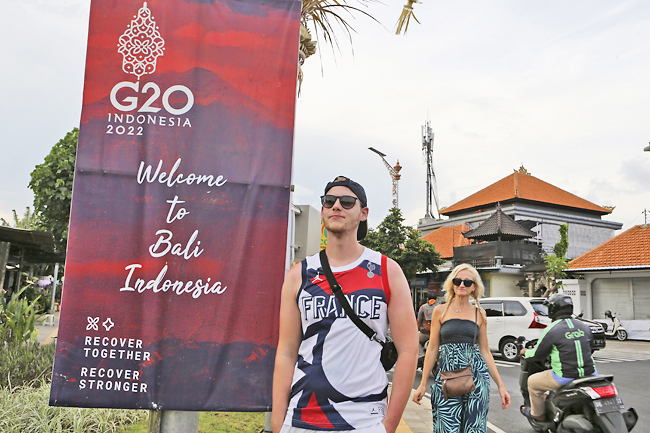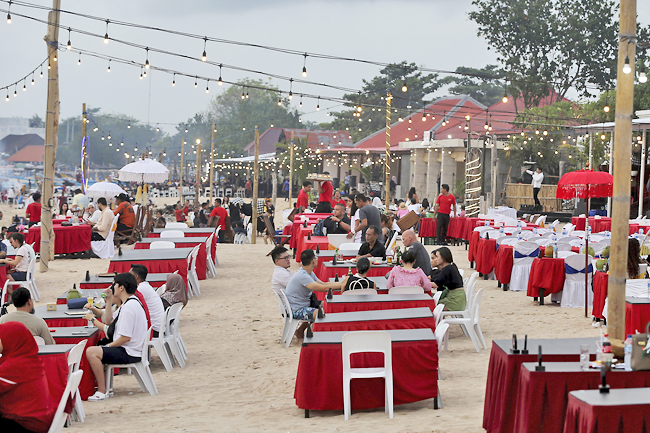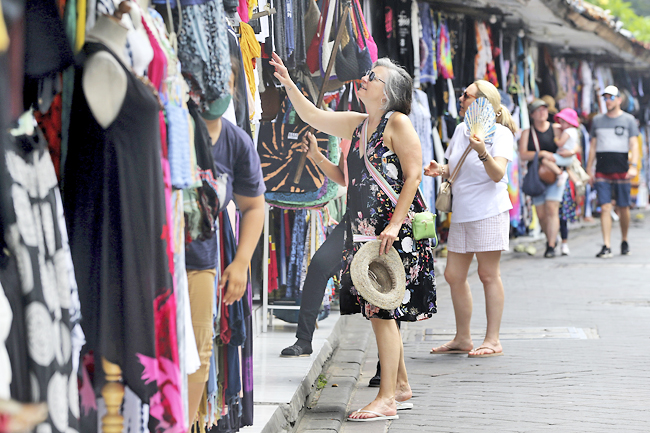Niniek Karmini
NUSA DUA, INDONESIA (AP) – Dozens of world leaders and other dignitaries are travelling to Bali for the Group of 20 (G20) summit, drawing a welcome spotlight on the revival of the tropical island’s vital tourism sector.
Tourism is the main source of income on this idyllic island that is home to more than four million people, who are mainly Hindu in the mostly Muslim archipelago nation.
So the pandemic hit Bali harder than most places in Indonesia.
Before the pandemic, 6.2 million foreigners arrived in Bali each year. Its lively tourism scene faded after the first case of COVID-19 was found in Indonesia in March 2020, with restaurants and resorts shuttered and many workers returning to villages to try to get by.
Foreign tourist arrivals dropped to only one million in 2020, mostly in the first few months of the year, and then to a few dozen in 2021, according to government data. More than 92,000 people employed in tourism lost their jobs and the average occupancy rate of Bali hotels fell below 20 per cent.
The island’s economy contracted 9.3 per cent in 2020 from the year before and again contracted nearly 2.5 per cent year-on-year in 2021.




“The coronavirus outbreak has hammered the local economy horribly,” said regional secretary of Bali province Dewa Made Indra. “Bali is the region with the most severe economic contraction.”
After closing to all visitors early in the pandemic, Bali re-opened to Indonesians from other parts of the country in mid-2020. That helped, but then a surge of cases in July 2021 again emptied the island’s normally bustling beaches and streets. Authorities restricted public activities, closed the airport and shuttered all shops, sit-down restaurants, tourist attractions and many other places on the island.
Monkeys deprived of their preferred food source – bananas, peanuts and other goodies given to them by tourists – took to raiding villagers’ homes in their search for something tasty.
The island re-opened to domestic travellers a month later, in August, but in all of 2021 only 51 foreign tourists visited.
Things are looking much better now. Shops and restaurants in places like Nusa Dua, a resort area where the G20 meeting is being held, and in other towns like Sanur and Kuta have re-opened, though business is slow and many businesses and hotels are still closed or have scaled back operations.
The re-opening of Bali’s airport to international flights and now the thousands coming for the G20 summit and other related events have raised hopes for a stronger turnaround, Dewa said.
More than 1.5 million foreign tourists and 3.1 domestic travellers had visited Bali as of October this year.
Embracing a push toward more sustainable models of tourism, Bali has rolled out a digital nomad visa scheme, called the “second home visa” and due to take effect in December. It’s also among 20 destinations Airbnb recently announced it was partnering with for remote work, also including places in the Caribbean and the Canary Islands.
The recovery will likely take time, even if COVID-19 is kept at bay.
Gede Wirata, who had to lay off most of the 4,000 people working in his hotels, restaurants and a cruise ship during the worst of the pandemic, found that when it came time to rehire them many had found jobs overseas or in other travel businesses. The G20 is a welcome boost. “This is an opportunity for us to rise again from the collapse,” he said.
There’s a way to go.
“The situation has not yet fully recovered, but whatever the case, life has to go on,” said Wayan Willy, who runs a tourist agency in Bali with some friends. Before the pandemic, most of their clients were from overseas. Now it’s mostly domestic tourists. But even those are few and far between.
Bali has suffered greatly in the past. At times, the island’s majestic volcanoes have rumbled to life, at times erupting or belching ash.
The dark cloud of the suicide bombings in Bali’s beach town of Kuta that killed 202 mostly foreign tourists in 2002 lingered for years, devastating tourism on the island usually known for its peace and tranquility.
Recent torrential rains brought floods and landslides in some areas, adding to the burdens for communities working to rebuild their tourism businesses.
When the situation started to improve, Yuliani Djajanegara, who runs a business making traditional beauty items like massage oils, natural soaps and aromatherapy products under the brand name Bali Tangi, got back to work.
She had closed her factory in 2020 when orders from hotels, spas and salons in the United States (US), Europe, Russia and the Maldives dried up, taking orders for her products from more than 1,000 kilogrammes to almost nothing.
So far, Djajanegara has rehired 15 of the 60 workers she had been obliged to lay off during the dark days of the pandemic.
She’s hopeful, but cautious.
“Tourism in Bali is like a sand castle,” Djajanegara said. “It is beautiful, but it can be washed away by the waves.”






